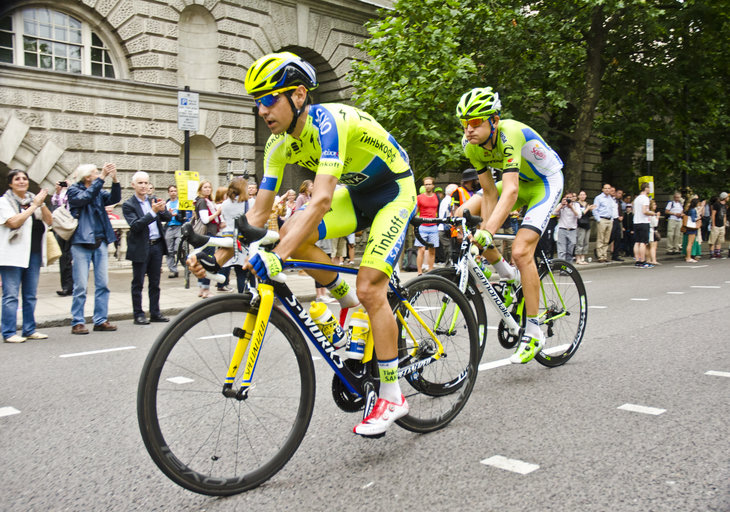As the majority of the legacy from the London Olympics trickles away into traditionally low participation levels and a lack of grassroots engagement in sport, one Olympic success has continued long after the games ended. Springboarding off the achievements of the British Cycling program in the London Games, the Prudential RideLondon weekend is a two-day festival of cycling now in its third year.
The weekend combines competitive events and casual ones, with the free-to-enter FreeCycle around central London being teamed with the men’s and women’s criterium-style Grand Prix, won by double Olympic gold medalist Laura Trott in 2013. On a purely sporting level, RideLondon hits both Olympic legacy targets: encouraging public participation in the sport, and providing a stage for the world’s greatest athletes to perform on.
Beyond this, there have been clear economics benefits, according to a letter from the Mayor of London’s office in response to a freedom of information request from a member of public. A reported 66,000 riders took place in the 2013 edition, and were backed by around 100,000 spectators on London roads, generating £13.2mil in ‘direct economic benefit[s]’ for the capital. The nature of these ‘benefit[s]’ are unspecified, but are likely to have been an increase in trade for local bars and restaurants, and more customers for hotels, as people from various age groups across the country flocked to the capital.
The 2013 event also raised £7mil for charity; the 2015 event will give money to 72 charities, ranging from Diabetes UK to their ‘Charity of the Year’, Scope, suggesting a broad and deep charitable benefit this year if the amount of money raised can be maintained, or improved upon.
Perhaps the greatest benefit of the weekend, however, is in getting people involved in cycling; the 2013 event was claimed to be ‘the largest inaugural mass-participation sports event in the world’, and was broadcast on BBC One to a peak audience of 1.9mil. While ‘interest’ is an intangible gauge of an event’s success, these figures suggest that the weekend had involved, if not inspired, exactly the audiences that the legacy of the London Games targeted.
James Patrick Casey
London – 2015

